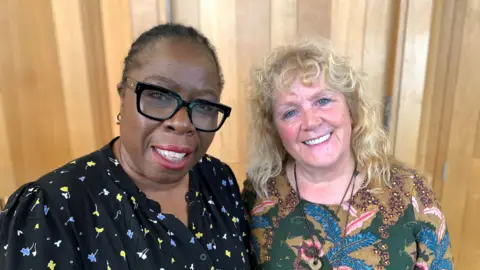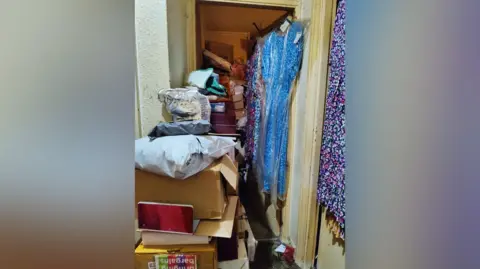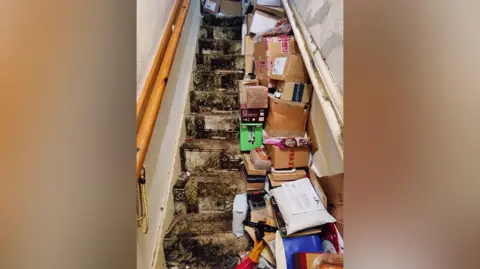More support needed for hoarders, urge experts
 BBC
BBCA social enterprise has warned it is seeing a large rise in people seeking help with severe hoarding.
Last month Birmingham-based Clouds End CIC said the issue had become a "mental health emergency", and its founder, Heather Matuozzo, said coverage of the issue since then led to more people coming forward.
It comes as mental health experts across the UK publish an open letter urging the government to increase funding to support people living with hoarding disorder.
Signed by charities, housing groups and academics, and led by Northumbria University, it warns of a critical situation in the absence of a co-ordinated national mental health strategy.
The call for increased awareness comes after the BBC in the Midlands followed Clouds End as it worked with hundreds of hoarders in Birmingham.
Estimates suggest the condition may affect four million people, but there has been no detailed analytical research.
The World Health Organisation (WHO) classified hoarding as a mental health disorder in 2018.
The Department of Health & Social Care (DHSC) said the government would "fix the broken system" to ensure mental health was given the same focus as physical health.

But hoarding experts say there must be a single unifying policy.
"Hoarding is often misunderstood, or dismissed as mere clutter, laziness or a lifestyle choice, but it is a complex mental health condition that goes far beyond an inability to organise or let go of possessions", said Prof Nick Neave, chair of the UK Hoarding Partnership.
"People who hoard often struggle to find adequate support and services, meaning they are frequently overlooked by social care systems, health services, housing authorities and mental health professionals."
Individual local authorities, including Birmingham City Council, have developed policies alongside the local NHS, funding third sector organisations to offer emotional support to those with the disorder.
But there is no single UK-wide policy, leading to concerns some people are falling through the cracks and unable to access support.
Ms Matuozzo believes the government needs to take their concerns more seriously.
"There has never been a more opportune moment to send this open letter", she said, ahead of Hoarding Awareness Week, which starts on Monday.
"The BBC's coverage of the official request for National Guidelines, prompted by a potential mental health crisis among people who hoard, has opened a door that must remain wide open."

The UK Hoarding Partnership, which was established last year, said there should be an integrated multi-agency approach, where mental health services, social care, environmental health, professional organisers, and housing authorities worked together to address the need.
Paulette Hamilton, the MP for Birmingham Erdington and vice-chair of the health and social care select committee, agrees.
"It needs to be a little more joined up, government, the NHS, so it's not just the voluntary sector and others that are trying to cure it", she said earlier this month.
"We could have some very strong recommendations which we can take to the Department of Health to get into communities," she added.
Responding to the open letter, a DHSC spokesperson told the BBC it was planning to recruit an additional 8,500 mental health workers, and invest £26m to open new community mental health crisis centres, alongside reforms to the Mental Health Act.
Follow BBC Birmingham on BBC Sounds, Facebook, X and Instagram.
